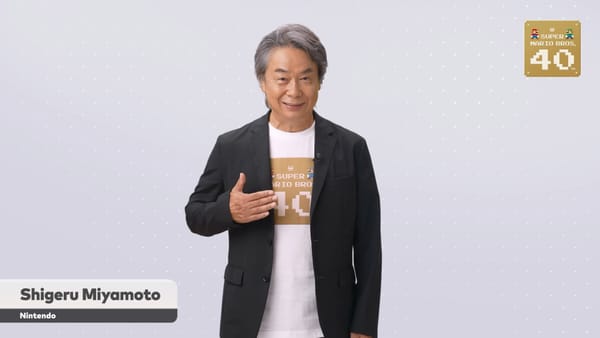Context versus expediency
Ghost of Tsushima was known for being a breezy game to play, but Ghost of Yōtei takes that to an extreme.
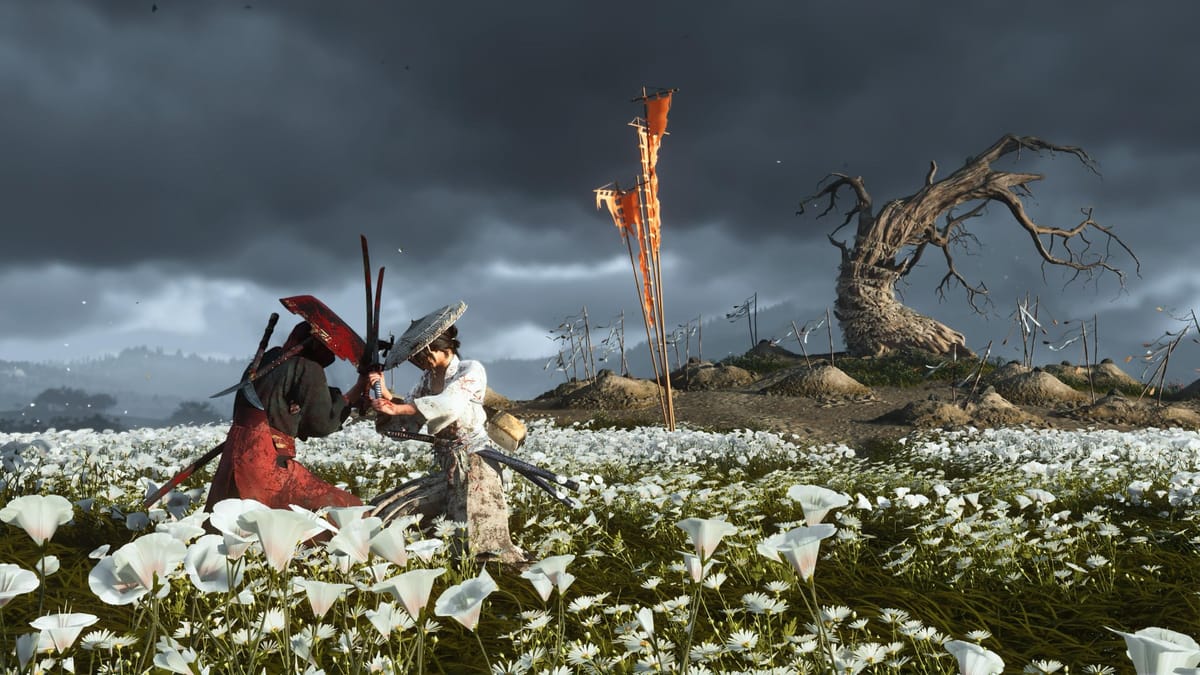
I didn’t realize my character in Ghost of Yōtei had a grappling hook until I jumped off a cliff.
As someone who sank dozens of hours into the previous game, Ghost of Tsushima, this was instinctive. Tsushima’s grappling hook was an essential tool, used to traverse the landscape almost as much as the katana was used to fight off foes.
And so it shouldn't be surprising that Yōtei brought back the grappling hook, even though it's set hundreds of years after Tsushima and stars a new protagonist. And yet it was a surprise, because the game never told me about it.
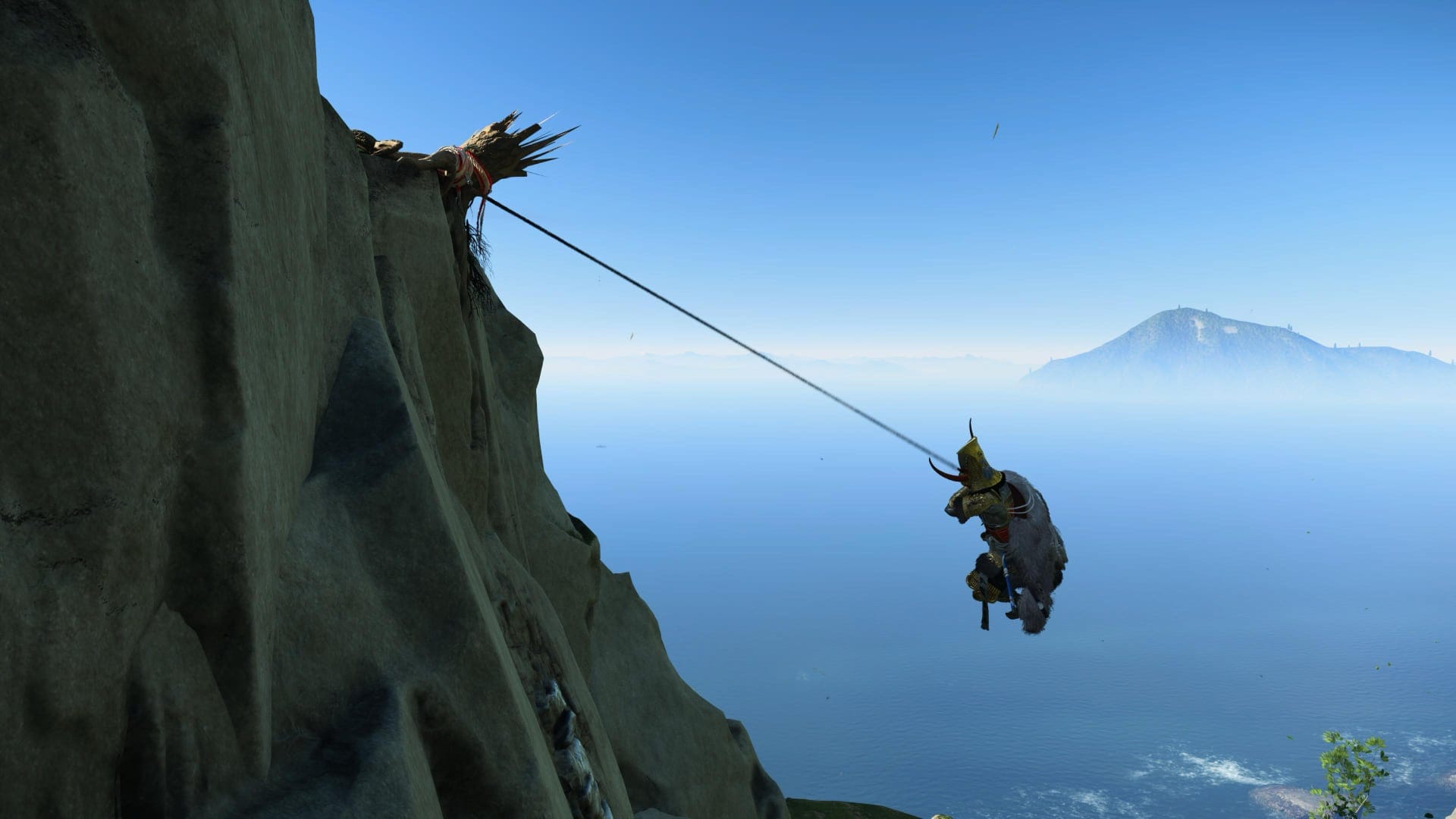
Modern games are full of tutorials. There are no instruction manuals anymore; most games are sold digitally, and even physical copies don’t come with printed manuals. (Some games have digital manuals, but has anyone ever read one of those?) Nowadays, the game itself has to teach players how to play.
This is a fine idea in principle, but it can be frustrating to dive into a new game and spend the first few hours being slowly walked through very basic controls like running and jumping. It’s even more tiresome in a sequel. Developers can’t assume that all players have played (or remember how to play) the original, so they subject everyone to the same explanation of basic mechanics.
From that perspective, Yōtei skipping the grapple tutorial and letting me just get on with the game should be worth celebrating. I remember that the previous game had a grappling hook. I recognize that tree stump over there as one of Tsushima’s grapple targets. So I'll just jump off that ledge and grapple over, no tedious explanation needed. That’s a good thing, right?
And yet I can’t help but feel like there’s something missing. What should be a positive instead feels emblematic of a wider issue, where Yōtei focuses on expediency at the expense of context. Little scenes or explainers that may seem extraneous are also opportunities to say more about the character you’re playing as and say more about the state of the world they inhabit.
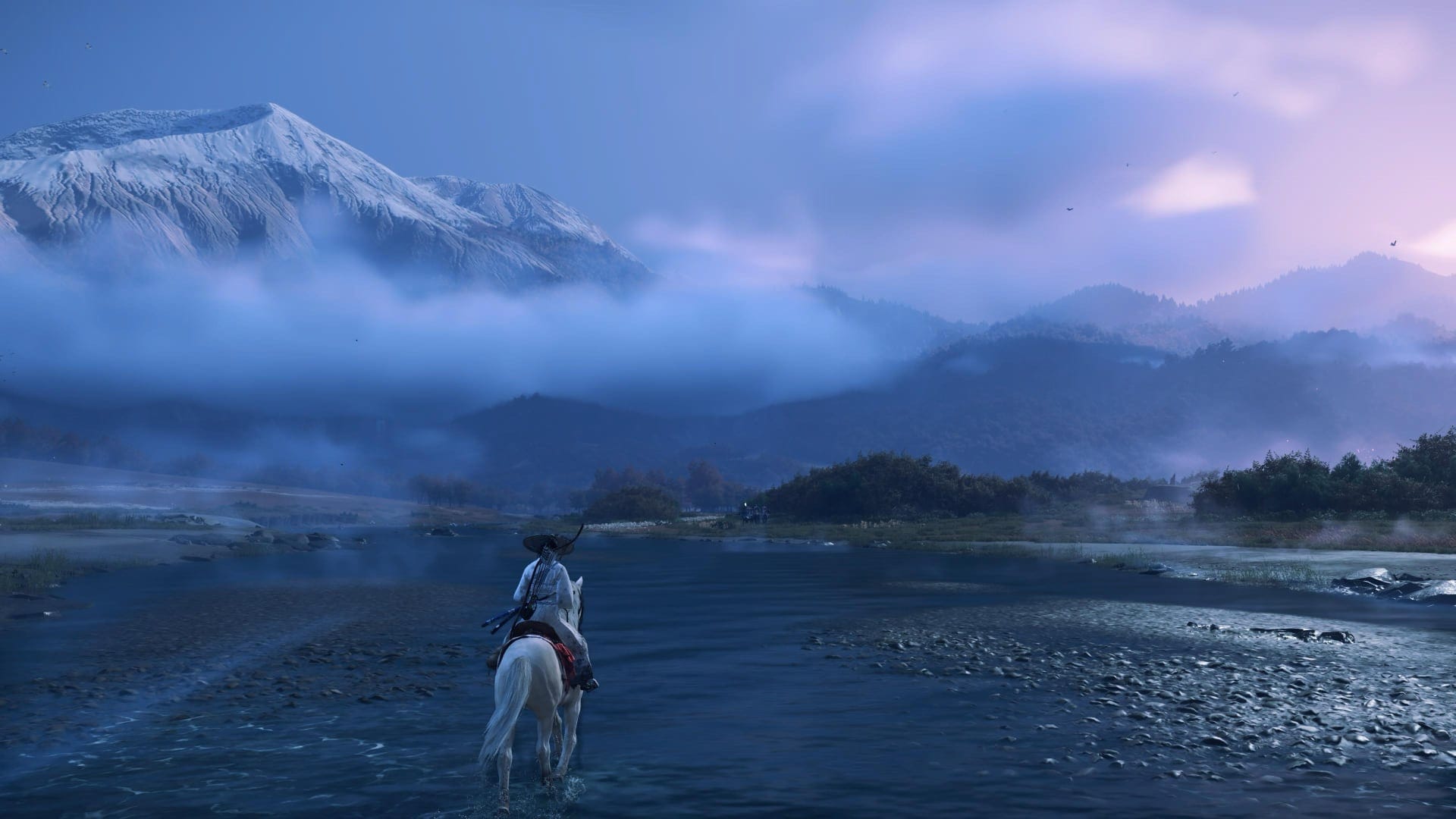
For instance, both Tsushima and Yōtei follow that well-known gaming trope where players are free to raid buildings and homes for any items, resources or money they may find. Tsushima takes the time to explain it: as the last samurai fighting back against a Mongol invasion, villagers will tell you that you're free to take any supplies you may need in your campaign to save their home.
In Yōtei, though, the situation is more ambiguous. Your quest there is not one of wider liberation but personal revenge, targeting the six warlords that murdered your family. You’re not a public defender, just someone with a vendetta. While some of the warlords are terrorizing the local population, it doesn’t appear to be as clear-cut as in Tsushima; some locals seem to support them, others dislike both the warlords and the samurai clan opposing them, others still don’t seem to care.
And yet, just like Tsushima, your character can freely and openly plunder from anyone. I had a frosty meeting at the compound of a samurai clan that opposes my brand of vigilante justice. It ended with the commander telling me to leave and never return — but on the way out, I helped myself to all the supplies in his camp while he stood and watched. It doesn't make sense. And there's no real justification for it other than, well, that's how it worked in Tsushima, so...
It might seem trivial to explain something that gamers have been doing for decades. But it’s not about justifying that specific element, it’s about using it as a way to shed more light on your character’s status in the world, one that Yōtei sorely needs.
Where Tsushima slowly built up your reputation as a defender of the people before you assume the mantle of the Ghost, Yōtei wastes no time in dubbing you the Onryō — but with little explanation of what that means to the wider population. I know an onryō is a vengeful spirit, and that some people deeply dislike the warlords I’m trying to kill. But, twenty hours in, I’m still not entirely sure how the people view as a whole view me; whether they see my character as a righteous force for justice or just another violent vigilante.
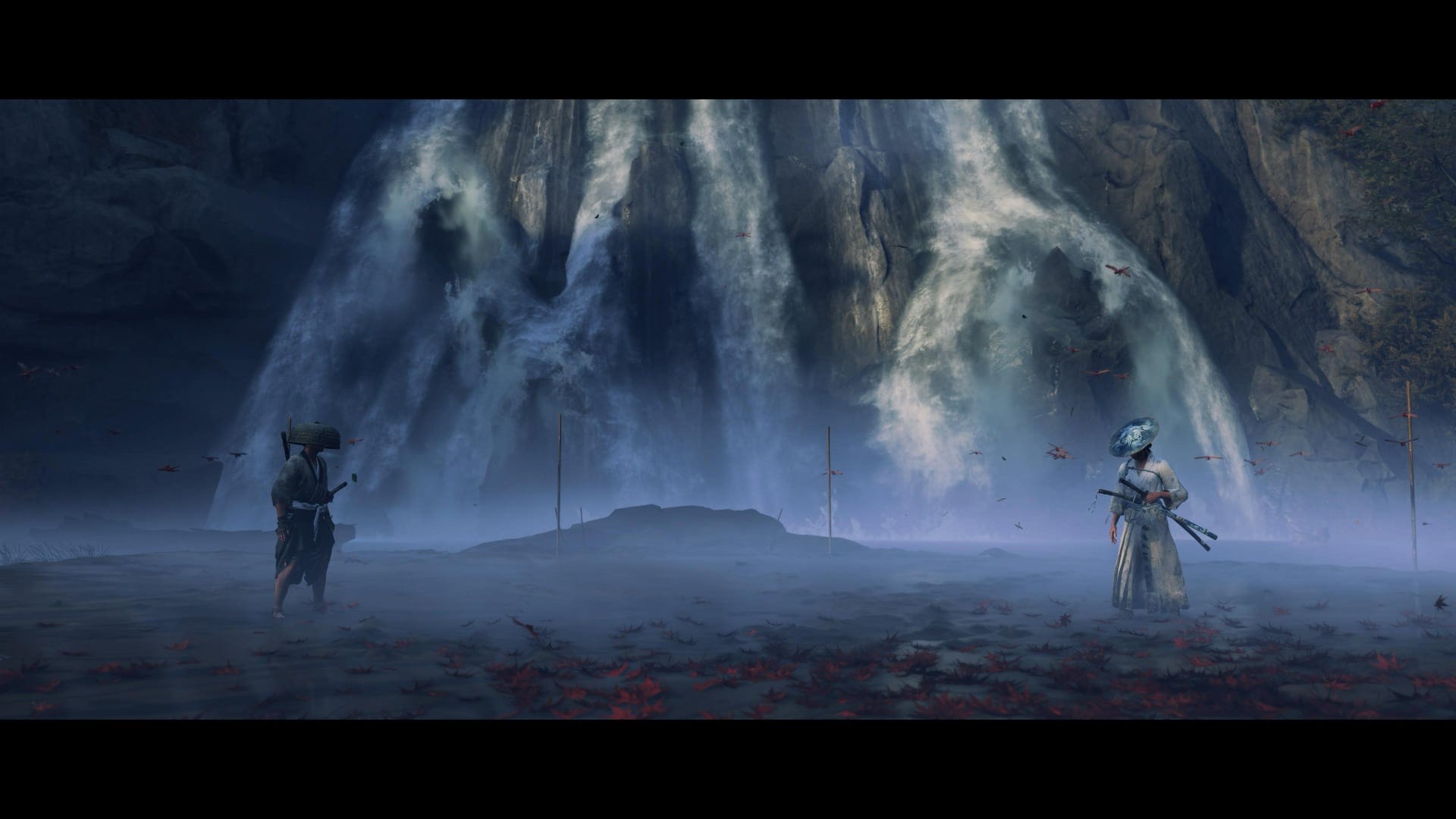
In truth, Tsushima’s opening was perhaps a bit too long and overdone. But Yōtei overcorrects too far in the other direction by speeding through things that could have been fleshed out.
It’s even more surprising given that Atsu, the protagonist, is a woman. She’s a fierce warrior slashing her way through 1600s Japan, but that rarely goes commented on; you could swap her gender and it feels like not much would change. Surely, in a country that still struggles to this day with gender equality, there was something more to say there?
Like Tsushima, Yōtei is an enjoyable game to play because it feels so breezy. Not in terms of difficulty, but because it’s full of little tweaks and quality-of-life features that remove friction. It helps you speed through the game by cutting out roadblocks that would otherwise continually stop to remind you of seemingly basic ideas and concepts.
Yōtei leans even further into this. It does what I thought I wanted; I thought I wanted fewer stops, less explanation. But it turns out that sometimes you do need to stop. That's where you can find the color and the context that a game needs.



